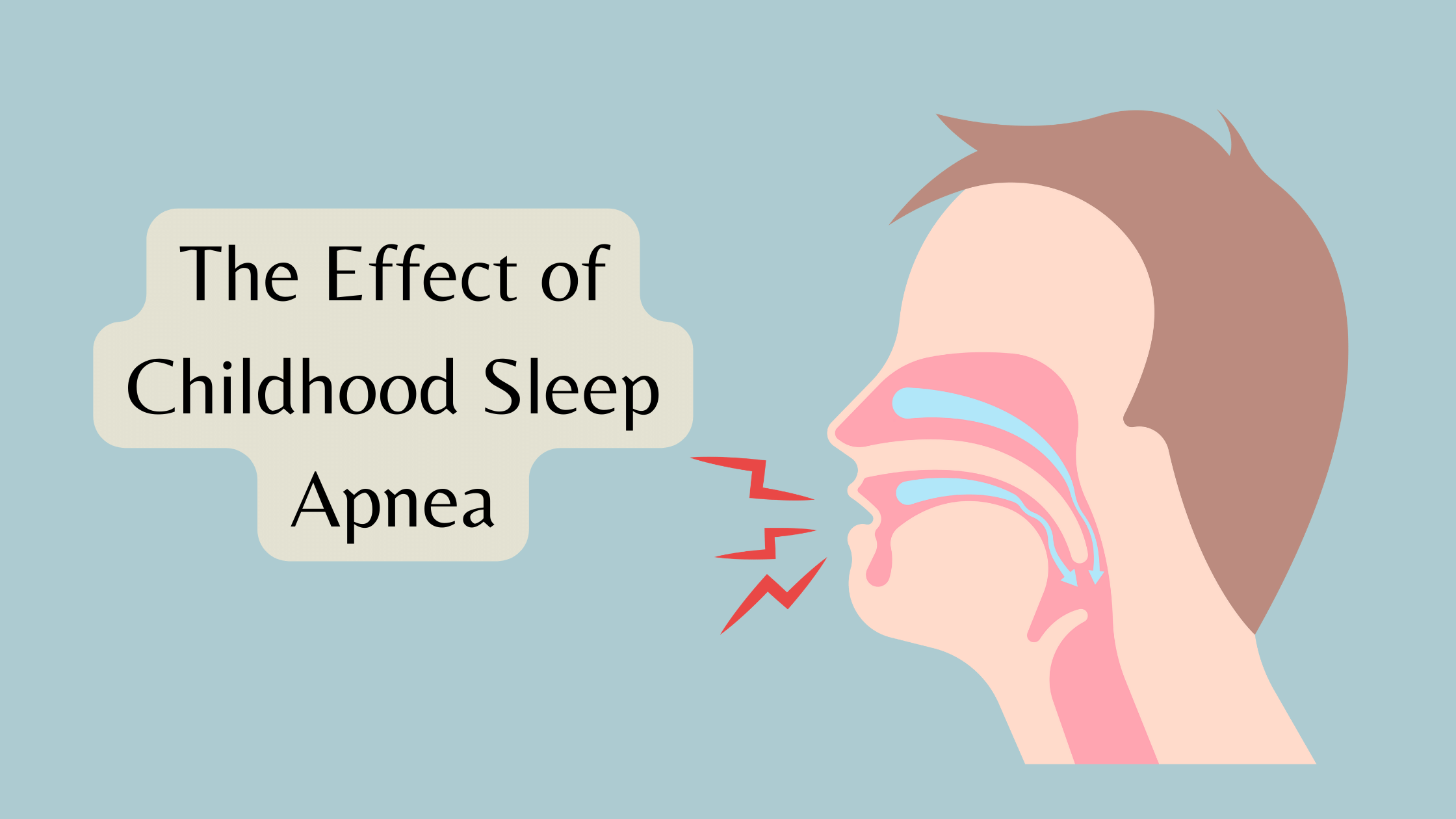
Childhood sleep apnea once overlooked is now recognized as a health issue impacting millions of children globally. Often mistaken for snoring, this condition can have effects on a child’s physical cognitive and emotional well being. This article explores the effects of childhood sleep apnea highlighting its dangers and stressing the importance of detection and intervention.
Childhood Sleep Apnea
Sleep apnea is a sleep disorder characterized by pauses in breathing during sleep. In children it can present differently than in adults making diagnosis challenging. Common symptoms include snoring disrupted sleep gasping for air and daytime drowsiness. However these signs are frequent. Attributed to causes leading to delays in diagnosis and treatment.
Physical Health Implications
Childhood sleep apnea can significantly impact health. The intermittent drops in oxygen levels associated with this condition can strain the system increasing the risk of hypertension heart disease and stroke in young individuals. Additionally untreated sleep apnea may contribute to obesity hormonal imbalances and hindered growth and development in children.
Cognitive and Behavioral Consequences
Sleep apnea has an impact on both function and behavior in addition to health, Children with sleep apnea may struggle with attention span memory and academic performance.
They may also exhibit behavioral concerns such as irritation low energy and mood swings which can impair how they interact with others and their overall well being.
Impact on Emotional Wellbeing
Sleep is essential for emotional and mood regulation.Disrupted sleep habits for children with sleep apnea might increase emotional instability.This causes increased anxiety despair and emotional outbursts.These psychological impacts not only have an impact on the child’s well being but they also disrupt connections with family and peers.
Long term Consequences
Untreated childhood sleep apnea can have long-term repercussions that last into adulthood,Chronic sleep and oxygen deprivation can impair cognitive performance and raise the risk of neurodevelopmental problems including attention deficit hyperactivity disorder.Furthermore untreated sleep apnea in childhood might expose people to a variety of health issues later in life including cardiovascular disease metabolic disorders and cognitive decline.
The Value of Early Detection and Intervention
Early identification and treatments are crucial for reducing the symptoms of pediatric sleep apnea. Healthcare practitioners and parents must be diligent in identifying the signs and symptoms of sleep disordered breathing in children.
Diagnosis typically involves a Combination of clinical evaluation overnight sleep studies and in some cases imaging studies such as a CT scan or MRI.
Treatment Options
Treatment for children’s sleep apnea is determined on the conditions severity and underlying causes. In moderate situations lifestyle adjustments such as weight loss positional treatment and allergy avoidance may suffice.Continuous positive airway pressure treatment is frequently indicated for moderate to severe sleep apnea in order to maintain the airway open while asleep. In certain situations surgical therapies such as adenotonsillectomy or orthodontic operations may be required to treat anatomical defects that contribute to sleep apnea.
Conclusion
Childhood sleep apnea is a quiet disruptor that has far-reaching implications for physical cognitive and emotional health. By raising awareness of the symptoms and effects of sleep apnea in children we may encourage parents, healthcare professionals and educators to take proactive measures towards diagnosis and treatment.Early identification and care can pave the way for a happier healthier future for youngsters suffering from this often ignored illness.